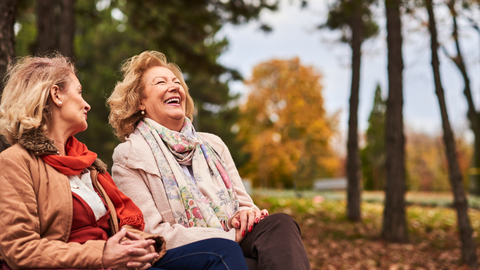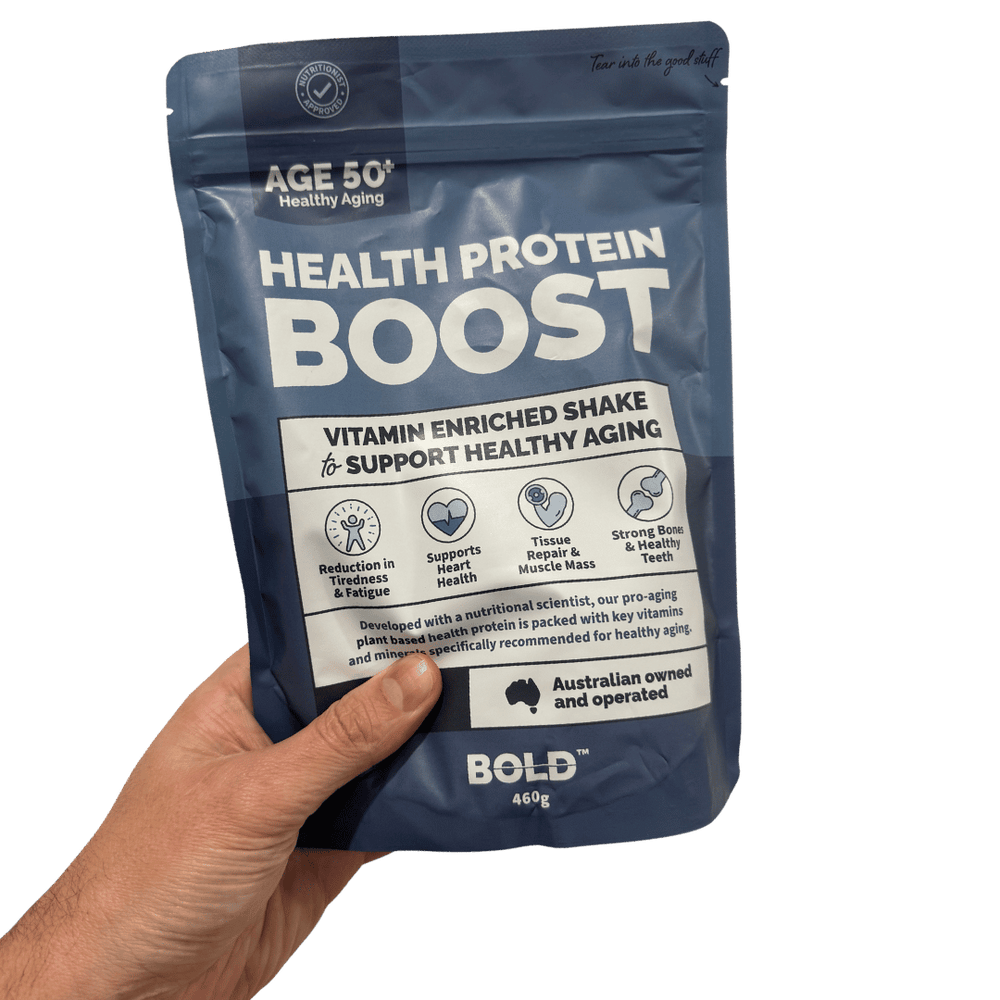How to look After Your Mental Health as you age
Tips to Avoid Depression and Anxiety

Topics Covered
- Find a hobby that interests you
- Stay connected
- Exercise every day
- Be mindful of what you eat
- Get plenty of good quality sleep
- Use relaxation techniques
- Summary
There's no doubt that aging brings a lot of changes to your life. There are physical, mental, and emotional effects on the body as time goes by. Some people find these changes difficult to adapt to which may impact their mental health. In Australia, it’s estimated that 10-15% of older people will experience depression and 10% will experience anxiety. These rates are even higher for those living in residential care at around 35%.
The good news is there are things you can do to help you avoid or better manage your mental health as you age. In this blog post, we'll tell you how you can help avoid depression and anxiety
Find a hobby that interests you
Research shows that those who take part in a creative activity or hobby, report an increase in mental wellbeing. They also report an increase in motivation to continue with this hobby, leading to an ongoing beneficial effect for their mental health.
For many people, finding a hobby might be the first challenge they face once they retire from work. If you find yourself sitting around all day with nothing to do, it can be easy for feelings of depression or anxiety to set in.
Some ideas you could think about include joining an exercise class, gardening, volunteering at a local charity organisation or getting creative with painting, drawing, or playing an instrument. This is also a great time to learn something new. Try taking an online class on the topic of your choice: cooking classes, writing workshops, dance lessons…the possibilities really are endless.
The important thing is to do something you're interested in. It will make it easier for you to stick with it, and the positive effects on your mental health will be noticeable!
Stay connected
Social connection is really important and can be a protective measure against depression and anxiety. You might be able to achieve connection through the hobby you choose to take part in which is great. If not, it's important to make an effort to stay connected with a community, old friends and/or family members.
Studies show that social isolation is a significant risk factor for depression and anxiety in older adults. So even simply sending a message to friends and loved ones every now and again can help you avoid feelings of loneliness, which can lead to mental health issues.
Exercise every day
This one is especially important as we age! Not only is exercise great for your physical health but it's also incredibly beneficial for your mental health.
Exercise releases endorphins, which are hormones that have a mood-boosting effect on the body. Not only that, but regular exercise can help keep our minds sharp and prevent conditions like dementia from developing down the track.
Aim to get at least 30 minutes of moderate-intensity exercise per day, 5 days a week. This could be anything from brisk walking to water aerobics, swimming, or cycling. So what is classified as moderate-intensity? It is an exercise where you are moving enough to puff. A good indicator of moderate-intensity is that you should be able to talk but not sing.
The best type of exercise to do is one that you enjoy and that is safe for your physical ability. If you are not sure what to do or where to start, a personal trainer or a physiotherapist that specialises in physical movement programs could help you. Alternatively, you could join a fitness class!
Be mindful of what you eat
As you age, it becomes even more important to eat highly nutritious foods! There are lots of studies that link poor diet to an increase in fatigue, irritability, and anxiety. On the other hand, eating healthy nutritious foods has been shown to improve moods and help with conditions such as depression and anxiety.
One of the most well-known studies looking at diet and mental health was conducted by a team from Deakin University. The trial, known as SMILES (Supporting Modification in Lifestyle for Lowered Emotional States) trial, used a modified version of the Mediterranean diet. This diet involves eating a wide variety of fresh fruits and vegetables, whole grains, legumes, nuts, fish, and healthy fats such as extra virgin olive oil. It is therefore rich in omegas, antioxidants, and protein.
The study found that participants in the dietary support group had a much higher success rate for mental health than those who were not.
So be mindful of what you put into your body - it will have an effect on your overall wellbeing!
Get plenty of good quality sleep
For some people, sleep becomes an issue as they age. In fact, people over the age of 60 years old are often more susceptible to insomnia. Poor sleep can lead to a whole range of physical and mental health problems, so it's important to aim for at least seven hours of quality sleep per night.
There are a few things you can do to help improve your sleep such as:
- establish a regular bedtime routine
- avoid caffeine and alcohol before bed
- avoid screen time at least an hour before bed.
It's also recommended to create an environment that is conducive to sleeping. This includes:
- optimising room temperature (between 15 and 19 degrees Celsius),
- creating a quiet, peaceful and darkroom environment
- using breathable good quality bed linen and pyjamas
There are also some supplements that may help you get a better quality sleep such as magnesium, kava, passionflower, valerian, ziziphus, withania and schisandra. However, it is always recommended to check with your pharmacist or doctor before starting any of these to ensure there is no conflict with the medications you may already be taking.
Use relaxation techniques
The use of certain relaxation techniques like meditation, yoga or mindfulness can be helpful for mental health. These techniques have been shown to decrease anxiety and depression symptoms in a number of studies.
There are many different types of relaxation exercises, so it is a good idea to find one that suits you!
Summary
There are many things you can do to keep your mental health in check as you age. Keeping physically active, eating healthy nutritious foods, getting plenty of good quality sleep, and staying connected are all important aspects. To learn more about how to improve your mood through mindfulness see our recent blog post, "The Benefits of Practising Mindfulness: How to Get Started and Stay Motivated".
Lastly, if feelings of depression and anxiety are preventing you from living your full life, don’t hesitate to reach out for help. There are lots of resources available both online and in person. You can speak with your doctor, call Lifeline on 13 11 14, or visit Beyond Blue or Act-Belong-Commit website.

References
- https://www.beyondblue.org.au/who-does-it-affect/older-people
- https://www.beyondblue.org.au/docs/default-source/resources/408362_0318_bl1366_hrnt.pdf
- https://www.beyondblue.org.au/who-does-it-affect/older-people/connections-matter
- https://connecthealth.org.au/enews/pursuing-a-hobby-can-improve-your-mental-health/
- https://www.ncbi.nlm.nih.gov/pmc/articles/PMC1470658/
- https://www.betterhealth.vic.gov.au/health/healthyliving/exercise-and-mental-health
- https://pubmed.ncbi.nlm.nih.gov/30591059/
- https://beyou.edu.au/fact-sheets/wellbeing/nutrition-and-mental-health
- https://www.headspace.com/mindfulness
----------------------------------------------------------------------------------------------------------
Medical Disclaimer
The information provided in this blog post is for general information only, it is not intended as medical advice. For medical advice please consult with a qualified medical professional who is familiar with your individual medical needs.


